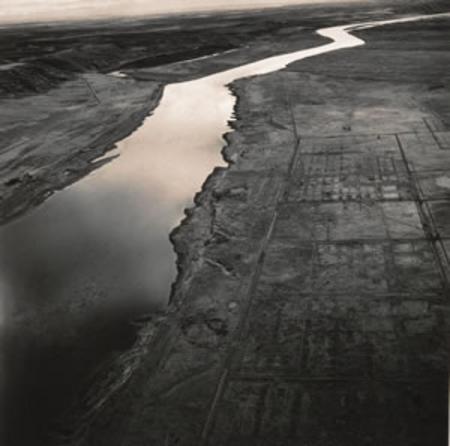forum
library
tutorial
contact

Oregon Joins Hanford Clean-Up Lawsuit,
Cites Tribes' Traditional Fishing Grounds
by StaffColumbia Basin Bulletin, March 6, 2009
|
the film forum library tutorial contact |

|
Oregon Joins Hanford Clean-Up Lawsuit,
by Staff |
 Oregon Gov. Ted Kulongoski and Attorney General John Kroger announced last week that Oregon will seek to join a lawsuit against the federal government over the longstanding failure to clean up the Hanford Nuclear Reservation on the Columbia River.
Oregon Gov. Ted Kulongoski and Attorney General John Kroger announced last week that Oregon will seek to join a lawsuit against the federal government over the longstanding failure to clean up the Hanford Nuclear Reservation on the Columbia River.
In issuing the announcement, the state noted that "Hanford's hazardous waste also puts at risk the traditional fishing grounds of the Confederated Tribes of the Umatilla Indian Reservation."
"This suit is about compelling the federal government to uphold its commitment to protect fully our environment and our citizens," Kulongoski said. "Further delay is unacceptable. The federal government must make this clean up a priority and meet its obligations to address the environmental and public health risks that the Hanford site continues to pose."
"Hanford poses a major risk to our health and environment," Kroger added. "It is time to clean it up."
The U.S. Department of Energy in 1989 agreed to a schedule for cleaning up at least 1,500 hazardous waste sites at Hanford, a former plutonium production site and part of America's nuclear weapons complex.
Among other things, the agreement with the U.S. Environmental Protection Agency and Washington State's Department of Ecology requires the U.S. Department of Energy to stabilize 53 million gallons of high-level radioactive waste, much of it stored in 149 aging, leak-prone single-shell underground tanks.
The 1989 agreement initially called for the treatment plant to be operational by 1999. After repeated extensions, the Energy Department is still likely at least a decade away from the treatment facilities coming on line. Although most of the free liquids have been moved out of the single-shell tanks, about 30 million gallons of waste remains in these tanks and further delays in getting the treatment facilities operational greatly increases the risk of future leaks and further environmental harm.
Unable to agree on a new schedule for operating the treatment facilities and for retrieving waste from the older tanks, Washington last November filed a federal lawsuit accusing the Energy Department of failing to abide by the 1989 agreement. Oregon has filed papers seeking to join the suit.
Oregon officials say the state has a particularly strong interest in the clean-up because the Columbia River flows through the Hanford site. They say clean-up delays increase the risk of serious environmental damage to the river.
The Confederated Tribes of the Umatilla Indian Reservation, one of the Northwest tribes who have traditionally fished, hunted and gathered foods in the area, welcomed Oregon's involvement at Hanford, the former plutonium production site and part of American's nuclear weapons complex.
The nearby Hanford Reach is where the last runs of the endangered fall chinook salmon spawn in the mainstem Columbia River.
"Oregon's message is parallel to the CTUIR policy; that the sooner we get that stuff out of the tanks and the tanks out of the ground, the sooner we can clean up the contaminated ground." said Stuart Harris, Director of the Umatilla Tribes' Department of Science and Engineering.
Millions of gallons have leaked from tanks, were injected directly into groundwater, or were discharged into surface trenches where they seeped into the soil and groundwater, according to Barbara Harper, Program Manager of Environmental Health for the Umatilla Tribes' Department of Science and Engineering.
The single-shell tanks are beyond their design life and the double-shell tanks are approaching the end of their design life, she said.
"At least 67 of the single-shell tanks have leaked and released at least one million gallons of high-level radioactive waste into the soil, some of which has reached groundwater. There it comingles with other groundwater contaminant plumes and migrates toward and into the Columbia River," said Harper.
Added Harris, "Our analysis using DOE data shows that the plumes are indeed moving."
Harris said it is imperative that Hanford move swiftly to build a vitrification plant, which is designed to turn the nuclear waste into glass that can more safely be stored.
Harris said the Umatilla tribal involvement follows its Hanford Policy, which says, "The Columbia River, including the Hanford Reach, should be protected from all pollution associated from the historic operations of the Hanford Nuclear Reservation, and wherever and for as long as those pollutants may pose a threat to the CTUIR. The DOE should fulfill its mission in full compliance with applicable federal and state laws and regulations. All sources of contamination that will impact groundwater will be removed and all groundwater contamination will be removed. The CTUIR will use the Hanford area to fish, hunt, gather traditional foods, and practice our traditional culture, ceremonies and commerce. The protection of the health and safety of members as they practice their traditional, cultural and commercial practices at Hanford is paramount. [Therefore] the US DOE must use the CTUIR subsistence exposure scenario in all risk assessments and in setting all clean-up goals."
learn more on topics covered in the film
see the video
read the script
learn the songs
discussion forum
